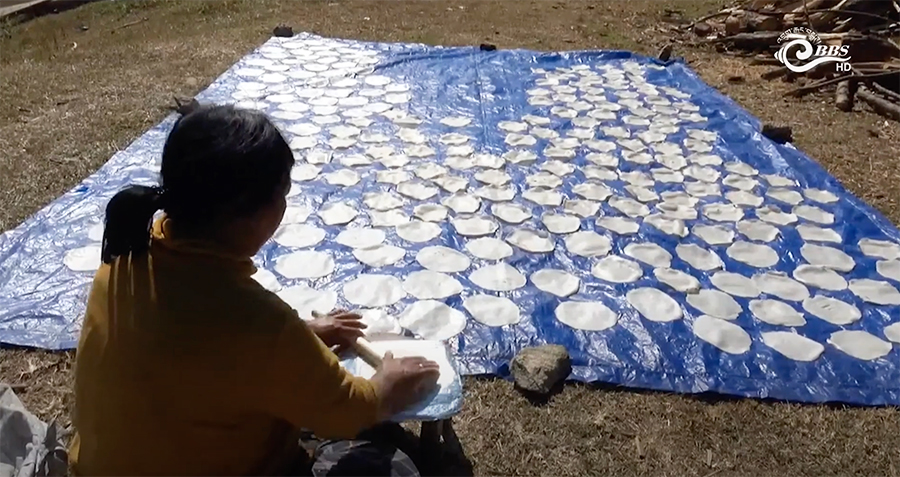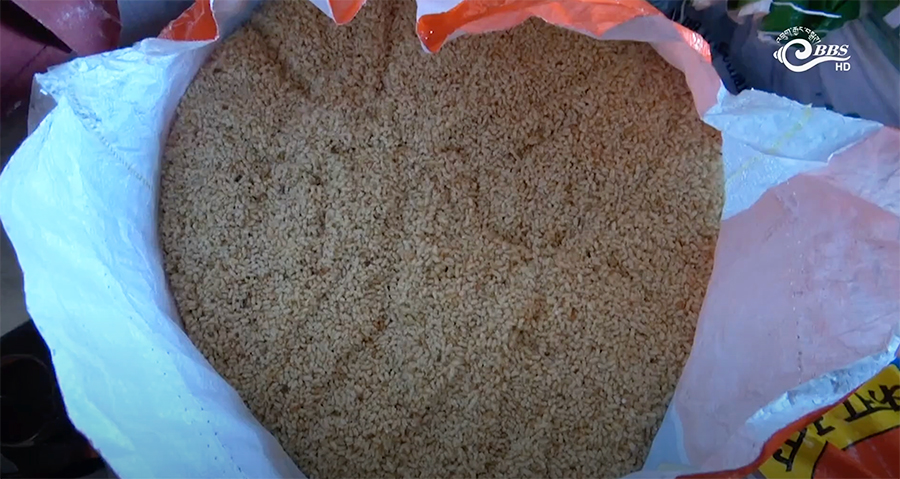
Women in Bartsham, Trashigang, are transforming traditional snacks into a thriving business. They prepare and sell a variety of products, including flatbread, roasted groundnuts, zaw, and chilli powder, earning between Nu 100,000 and Nu 500,000 annually. This entrepreneurial spirit is not only preserving cultural traditions but also providing a significant source of income for the community.
As paddy is harvested and maize collected, villagers in Muktangkhar usually take a well-deserved break after months of hard work in the fields. However, for the women of the village, this marks the start of a busy season as they prepare a variety of snacks.
The women have been doing this for over a decade and keeps them hard at work.
 Norzom is busy dividing rice flour dough into small balls and rolling them into flatbreads, which are then sun-dried and later fried. Meanwhile, other women are making zaw, packing roasted groundnuts, chilli powder, and other flour-based products.
Norzom is busy dividing rice flour dough into small balls and rolling them into flatbreads, which are then sun-dried and later fried. Meanwhile, other women are making zaw, packing roasted groundnuts, chilli powder, and other flour-based products.
The women take their snacks to local shops within the district and even sell them at Trashigang’s Sunday market, turning their craft into a thriving business.
 “I prepare four types of snacks, along with Zaw and roasted groundnuts. In total, I earn about Nu 500,000 annually from my work. However, I find it difficult to save much because I have to spend on essentials like oil, rice, and even plastic for packaging the products,” said Namkha Wangmo, one of the women doing the business.
“I prepare four types of snacks, along with Zaw and roasted groundnuts. In total, I earn about Nu 500,000 annually from my work. However, I find it difficult to save much because I have to spend on essentials like oil, rice, and even plastic for packaging the products,” said Namkha Wangmo, one of the women doing the business.
Norzom said, “In winter, most people conduct rituals, which increases demand for our products. During this time, we make more items to fulfil orders. In other seasons, we are busy with farm work, so production slows down. The earnings mostly go toward supporting our children. That’s how we generate income.”
Rinzin who also makes snacks said, “We don’t have many sources of income from farm products here. We earn a small amount from groundnuts, but we don’t have large-scale paddy cultivation. Rice is produced only in a few dry land areas. To earn money and meet our family expenses, we’ve turned to doing business.”
 Around 18 households in the village are involved in the business, with women leading the way in preparing and selling the snacks.
Around 18 households in the village are involved in the business, with women leading the way in preparing and selling the snacks.
Sonam Darjay, Trashigang
Edited by Sangay Chezom









